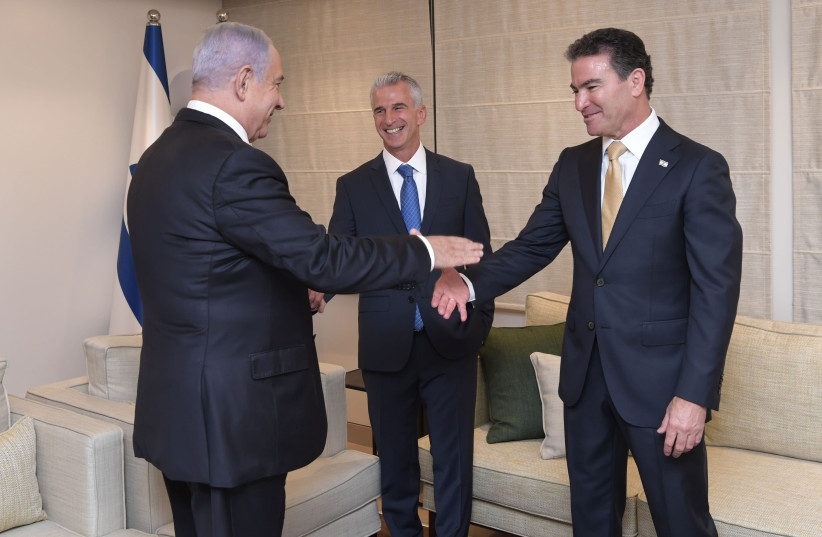Israel should use the positive meeting last week between Prime Minister Naftali Bennett and US President Joe Biden to stop Iran’s march toward hegemony in the Middle East and toward a nuclear weapon, former Mossad director Yossi Cohen wrote on Wednesday.
In his first public op-ed since retiring as Mossad chief in June, Cohen wrote in Yediot Aharonot, “Especially in light of the positive relations prevailing between Jerusalem and Washington, between Prime Minister Bennett and President Biden, these messages [stopping Iran] could be accepted positively, in my estimation, and could be internalized by the US’s policy-makers.”
More specifically, he hooked onto Biden’s statement to prevent Iran from going nuclear at any time, and not merely during his current term, as a sign that Washington was in a unique position of being open to altering its policy of simply wanting to negotiate a weak nuclear deal with Tehran.
Cohen warned that the speedy fall of Afghanistan to the Taliban along with the Biden administration’s constant push to return to the 2015 JCPOA Iran nuclear deal are a formula for disaster and must be confronted quickly.
The former Mossad chief expressed concern that the US may soon fully withdraw from Iraq, like it did in Afghanistan, which could lead to the current Iraqi regime falling and becoming completely dominated by the Islamic Republic.
The US has already announced an end to combat missions in Iraq, but, at least to date, has maintained a small force of a few thousand military advisers to the Iraqi government and military, which has tried to maintain positive relations with both America and Tehran.

Cohen wrote that he is concerned that either the limited scope of this mission, or any future reduction in the US physical presence in Iraq, could alter the face of the region by empowering Iranian control in the large and influential country.
He discussed Iran’s four-year public campaign to create a land bridge through the region and a “circle of fire” around Israel, including the presence of Islamic Revolutionary Guard Corps personnel and proxies in Iraq, Syria, Lebanon, Yemen and Gaza.
Next, he said that Iran’s plan to move forward with advanced centrifuges and enrich uranium in two underground nuclear facilities (which are harder to attack from the air), Fordow and Natanz, are bringing it closer to a nuclear weapon.
Cohen warned that the JCPOA, without a major overhaul, would allow Iran to reach a nuclear weapon when it expires in 2030, or even earlier.
The op-ed was partially remarkable because it took a conciliatory and positive tone toward Bennett despite the fact that Cohen’s primary political sponsor to date, Benjamin Netanyahu, has been highly critical of Bennett’s meeting with Biden.
Cohen has indicated to The Jerusalem Post that he is interested in jumping into the political arena after his three-year cooling-off period.
It was unclear whether his op-ed was an early attempt to distinguish himself from Netanyahu, even as he would be expected to join the Likud, based on his overall views, or whether he was merely expressing his view as a former intelligence chief, without regard to his future political plans.
He was head of the Mossad from 2016 to this past June and was known for his aggressive operations against Iran and opposition to the JCPOA.
